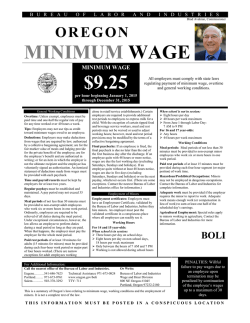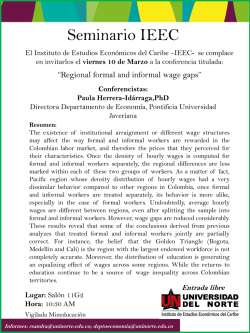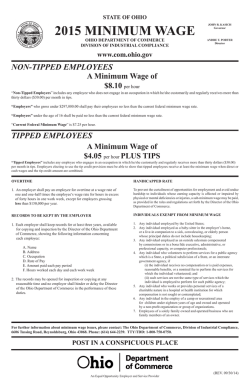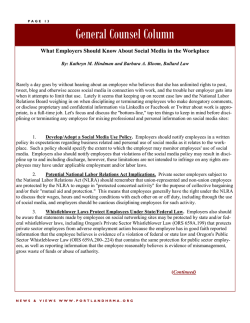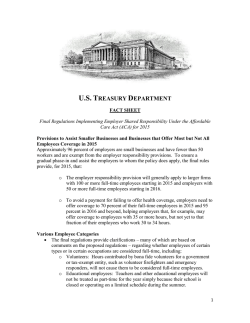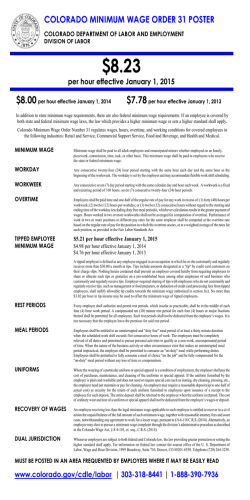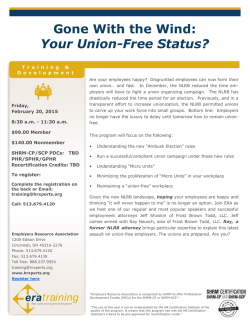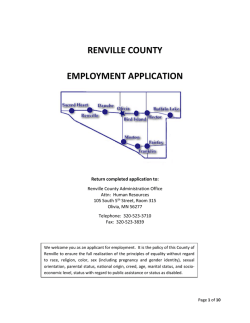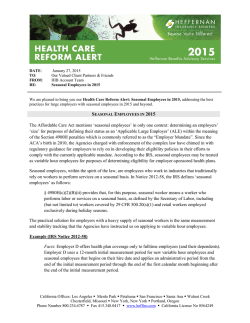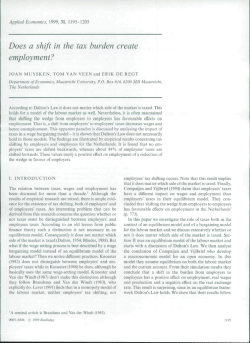
Litigating Final Wage Claims: The Good, The Bad and
FEATURES Litigating Final Wage Claims: The Good, The Bad and the Unexpected Anne E. Denecke Denecke Employment Law J. Kent Pearson, Jr. Bullard Smith Jernstedt Wilson O regon law details how and when employers must pay final paychecks to employees who quit or who are terminated. While the timing of the final paycheck varies according to the circumstances of the separation, the essence of ORS 652.140, the Oregon final pay statute, is that employers must pay all sums due and payable to the employee. Employers who violate the final pay statute are vulnerable to litigation by former employees, Anne E. Denecke either in conjunction with discrimination or wrongful discharge claims or, more commonly, as the sole claim. Final pay wage claims are particularly frustrating to litigate because the amount of wages at issue often pales in comparison to the penalties and attorneys’ fees at stake. In light of the potential liability for penJ. Kent Pearson, Jr. alty wages and attorney fees, defending wages claims can often feel like trying to escape from quicksand— the more one struggles, the deeper one sinks. Consequently, employers (and their lawyers) handling wage issues should have a proactive plan in place to address wage claims, including the following: 1. Pay on time. Final pay wage claims often involve late payment of wages that are admittedly due and owing. To avoid these types of claims, employers should train their payroll personnel on the requirements of the Oregon final pay law, including the broad definition of “wages.” Multi-state employers that process their Oregon payroll out of state should make arrangements to allow Oregon facilities to comply with the final pay rules, either through preparation of final paychecks on-site or by expedited delivery of out-of-state checks. 2. Avoid Disputes. Late wage claims may involve disputes about whether wages are owed in the first place. These disputes—and the resulting wage claims— are often the product of poor communication by the employer. Employers can avoid many such claims by effectively communicating their policies with respect to such matters as payment of accrued but unused sick leave, vacation, and paid time off upon separation from employment. Commission payments—how and when they are earned, how they are calculated, and the effect of termination on the payment of commissions—is another area where claims often are the result of unclear policies and agreements. Employers should give particular attention to “plain language” commission policies, and use examples of calculations to avoid misunderstandings. Even the best policy offers no assistance if the employer cannot prove that the policy was communicated to the employee. Consequently, employers should require employees to acknowledge in writing the receipt of employee handbooks and any stand-alone pay policies, including commission agreements. Although tempting, employers are advised to avoid building potential areas of disagreement, which may trigger a later claim, into their pay policies or agreements. For example, a policy that provides that employees terminated “for cause” forfeit their accrued but unused vacation pay upon termination simply invites dispute as to whether there was “cause” for the termination. A better practice is to provide that all employees who are involuntarily terminated are not eligible to received unused vacation pay. Alternatively, the policy concerning eligibility for payment of accrued vacation pay could apply to all employees regardless of the circumstances of the termination. Employers should also emphasize solid timekeeping practices to ensure that all compensable time is accounted for and paid. Improper payroll rounding practices, unlawful wage deductions, interrupted meal periods, travel time mistakes, even off-duty e-mails can lead to a claim for unpaid wages. These problems can be corrected in a timely final paycheck, thus avoiding a final pay claim. 3. Determine the facts early. In final pay wage claims for violations of ORS 652.140, employers and their counsel should maintain vigilance for any written notices of nonpayment. Under ORS 652.150, unless the employer has violated Continued on next page 4 The Verdict ■ Spring 2011 FEATURES Litigating Final Wage Claims continued from page 4 the final pay statute in the year prior to the employee’s termination, the potential penalty for failure to willfully pay all wages due and owing upon termination of employment is limited to an amount equal to the unpaid wages. This is the rule unless the employee or his attorney provides written notice of the nonpayment, and the wages are not paid within 12 days after the employer’s receipt of the notice. A common tactic by plaintiffs is to provide the notice of nonpayment in a letter detailing additional legal claims and demanding a sum far in excess of the potential unpaid wages. Upon receipt of such a demand, employers and their attorneys should give serious consideration to conservatively calculating and paying the portion of the demand related to unpaid wages, if the claim appears to have merit. 4. Don’t Forget the Penalties. According to the Oregon Court of Appeals, an employer who willfully violates the wage-payment provisions of ORS 652.140 may not avoid litigation simply by paying the unpaid wages. Sabin v. WillametteWestern Corp., 276 Or 1083, 1093, 557 P2d 1344 (1976) (violation is “willful” under ORS 652.150 if act or omission was purposeful and not the product of inadvertence). Instead, the employee may sue to recover penalty wages and attorneys’ fees even after the employer pays the underlying wages. See Wyatt v. Body Imaging, PC, 163 Or App 526, 989 P2d 36 (1999). 5. Circle the Wagons. Employers generally may not use legal claims against the employee to warrant withholding wages from a final paycheck. Employers may, however, allege such claims as counterclaims in any final pay litigation as an offset to any employer liability. As noted, the availability of attorneys’ fees for successful claims often drives final pay claims. Consequently, defending the claim for fees is of paramount importance, and the employer should consider raising an affirmative defense to any claim for attorneys’ fees. ORS 652.200 provides two potential defenses. First, if the employee willfully violates his contract of employment—for example, by taking employer documents in order to compete with the employer—he is precluded from recovering attorneys’ fees. Oregon courts generally have interpreted this requirement to mean that the employee’s conduct was severe enough to warrant his termination. Consequently, if the employee voluntarily quit his employment and there were no disciplinary actions pending, this defense may prove problematic. Second, if the employee’s attorney unreasonably failed to give written notice of the wage claim, the plaintiff may not recover fees. 6. Consider an Offer of Judgment. Given that attorneys’ fees are often the predominant consideration in final wage payment claims, employers should con- sider the advisability of an offer of judgment under ORCP 54E or FRCP 68. Insofar as offers of judgment have the potential of cutting off the recovery of attorneys’ fees if they are rejected and the plaintiff recovers less at trial, such offers generally have a powerful impact on a plaintiff’s willingness to engage in meaningful settlement negotiations. Conclusion Employers can significantly reduce the risk of final pay claims by implementing solid pay practices and procedures. However, an employer that receives a final payment claim should act promptly, including notifying the company’s employment attorney, to set the stage for a strong defense supported by a thorough knowledge of the complex wage payment rules. Nothing bites like going to court without a good argument. It’s risky, potentially painful—and when you know the lawyers to call, entirely avoidable. MARKOWITZ HERBOLD GLADE & MEHLHAF T R I A L PORTLAND The Verdict ■ I Spring 2011 503.295.3085 I PC L A W Y E R S WWW .MHGM.COM 5
© Copyright 2026
